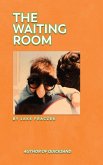Jackson was a hard worker. He did construction work, house-painting, and other odd jobs, like sweeping out a neighborhood bar. He had to work hard to support his all-consuming habit - writing. Charles Champlin of the Los Angeles Times says that Thomas wrote "irregularly, idiosyncratically, entertainingly, personally and, above all, passionately.... His opinions, forceful but fair, were measured against a life that had never been easy but that had seemed to leave him, despite all, with a profound philosophical optimism that better days were coming". From a black perspective, Jackson's work forms a particular and important testimony, both positive and negative, about life in the United States from the 1930s through the 1970s, and about life in the Army during the 1950s. One of Thomas's friends, noted producer and playwright Ned Bobkoff, wrote upon learning of the publication of the collection: "There is an indelible connection between the Watt's Riots, the Rodney King incident - the outbreak of pain in L.A. - and the sudden renewed interest in James's work... The cycle is with us again. James had a real vision about time and place that may be the important contribution of his writing".
Hinweis: Dieser Artikel kann nur an eine deutsche Lieferadresse ausgeliefert werden.
Hinweis: Dieser Artikel kann nur an eine deutsche Lieferadresse ausgeliefert werden.








